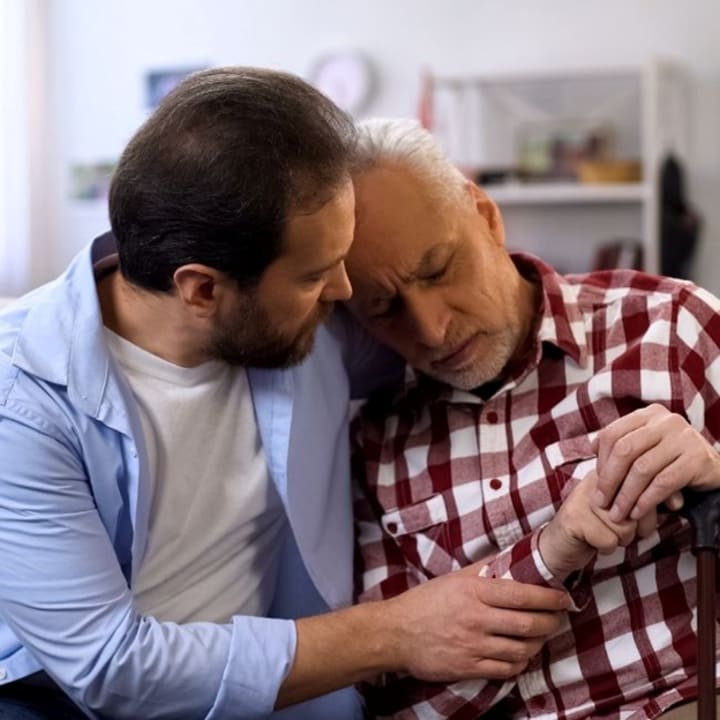Medical Marijuana in Crucial in Treatment of Terminally Ill Patients
Medical Marijuana Treatment

Terminal illness is hard to endure for patients, caregivers, family, and friends. The goal when providing end-of-life care is to make the patient comfortable, decrease pain, and improve emotional health to create a positive experience for the remainder of their time. There are many conventional methods used in terminally ill patients that can create barriers in reaching this goal.
Medical marijuana Card Naples is a safer, more effective option, with fewer side effects than conventional end-of-life treatments. Medical marijuana has the potential to help patients live the end of their lives with less pain, stress, and eases severe symptoms, including depression.
Terminal patients need to be treated, without the concern of curing their illness. We explore the most common terminal illnesses and the treatments that are conventionally used to treat them. We also examine why medical marijuana treatment is beneficial to patients who are burdened by terminal illness.
Most Commonly Suffered Terminal Illnesses:
Every year millions of people are diagnosed with a terminal illness and the effects can be physically and emotionally devastating. The most common terminal illnesses include cancers, kidney disease, and AIDS.
Patients who are suffering from these terminal illnesses often deal with several debilitating issues, including:
• Chronic Pain
• Nausea
• Vomiting
• Depression
• Anxiety
• Suicidal Thoughts/Behaviors
• Loss of Appetite, Anorexia
It is critical to provide these patients with relief from their symptoms and ensure that their time left living is a positive, stress less, and pain-free experience.

Most Common Treatments for Terminal Illnesses:
Conventional treatments for terminally ill patients often consist of a combination of pain medications, antidepressants, psychology-based therapy, and anti-nausea medications.
Conventional doctors in Sarasota, Melbourne, and Miami typically prescribe strong painkillers, including morphine and fentanyl to patients during their end-of-life care. These provide patients with pain relief and provide temporary pleasure resulting from euphoria.
Patients who are terminal are at a high risk of suffering from suicidal thoughts and/or behaviors. Anti-depressants are often prescribed to help ease symptoms of severe depression that can lead to these dangerous thoughts and behaviors. The issue is that these medications take time to be effective and build up in the body, meaning that medications may not have time to work in terminal patients.
Therapy is beneficial and commonly needed for terminally ill patients. Therapy helps patients feel more at ease by understanding their medical condition and addressing the struggle of their mental and emotional health symptoms.

Some Conventional Treatments Can Worsen Quality of Life:
The issue with these conventional treatments is that they can cause side effects that have the potential to further worsen the patient’s quality of life. Strong pain medications often cause unpleasant side effects, including constipation, vomiting, and/or severe nausea.
Antidepressants are good for many Patients, but there is simply no time for these medications to work in the majority of terminal patients
Medical marijuana is becoming increasingly used in end-of-life care because this treatment option adds no troubling side effects to a patient’s existing symptoms.
Marijuana can help increase appetite, ease pain, improve sleep, and decrease emotional health issues. All of these benefits are attainable without troubling side effects present with traditional treatment.

Marijuana Eases Physical Symptoms of Terminal Illness:
Marijuana has the ability to help patients who are suffering from terminal illnesses find relief from debilitating physical symptoms. These include:
• Anorexia, Lack of Appetite
• Vomiting
• Nausea
• Insomnia
• Bodily Pain
Marijuana has become a critical part of treatment at the end of life care for patients who are burdened by cancer and aids. This is because it is impressively effective at eliminating plaguing nausea and vomiting and increasing patient appetite.
These are incredible benefits that create positive experiences for patients who are terminal. This is because as the illness progresses, it is common for appetites to decrease, this usually continues until appetite becomes non-existent.

Marijuana’s Therapeutic Role in Hospice Settings:
It is also common for patients who are burdened with terminal illnesses to suffer from severe emotional issues. These emotions are strong and resemble the feelings experienced in the cycle of grief. Common emotional reactions can include anger, fear, depression, shock, helplessness, and/or denial.
These emotions cause further pain in patients who are already suffering from grave illnesses.
Patients who are dealing with terminal illnesses should not have to suffer from the severe depression and anxiety that commonly arise. Marijuana has the ability to help these patients find relief from these severe emotional issues and provide them with a peaceful passing.
Marijuana is better than the conventional therapy options that are currently being offered in healthcare settings, in Sarasota, Miami, Orlando, and throughout the state. Marijuana has no waiting period, which is a blessing because end-of-life patients do not have time to wait for relief from their symptoms. Medical marijuana works immediately to relieve pain, anxiety, depression and helps patients sleep.

Marijuana Versus Conventional Treatment:
We can conclude that marijuana is a safer and more effective option for patients who are undergoing end-of-life care.
Marijuana can ease pain, improve appetite, and eliminate severe mental health issues.
Marijuana is also non-fatal in any dosage, making it much safer than the dangerous, side effect producing opiates that are commonly prescribed.

How to Administer Marijuana Medications in the Terminally Ill:
There are several methods for ingesting medical marijuana that will depend on the state of the patient. Medical marijuana can be smoked, inhaled, swallowed via a capsule, eaten, or put into a beverage.
The deciding factor in this decision will depend on how the patient can most comfortably take their marijuana medication. The fastest administration method of medical marijuana is to smoke it, but this is not always an option for some patients.
Edibles are also a popular option. Edibles take longer to be effective but provide patients with relief for a longer period of time.
If patients are too ill to ingest marijuana medication orally, through edibles or smoking, caregivers may need to try using topicals. There are lotions, oils, and transdermal patches that administer medication through the skin.

Contact My Florida Green:
Patients deserve to be comfortable, pain-free, and without depression and anxiety at the end of their lives. If you or a loved one are dealing with the burden of a terminal illness it is imperative that you reach out for help today.
My Florida Green has medical marijuana doctors throughout Florida, including locations near Sarasota, Naples, Fort Lauderdale, Saint Petersburg, Orlando, Miami, and more.
My Florida Green was founded solely on the mission to help patients with terminal illnesses experience relief. Their team of compassionate patient advocates and qualified marijuana doctors are proud to be Florida’s only trusted team of marijuana card providers.
Contact the medical marijuana experts at My Florida Green to learn more about medical marijuana and how it can improve end-of-life care.





Comments
There are no comments for this story
Be the first to respond and start the conversation.